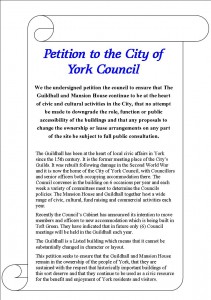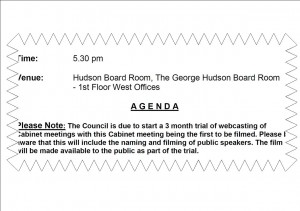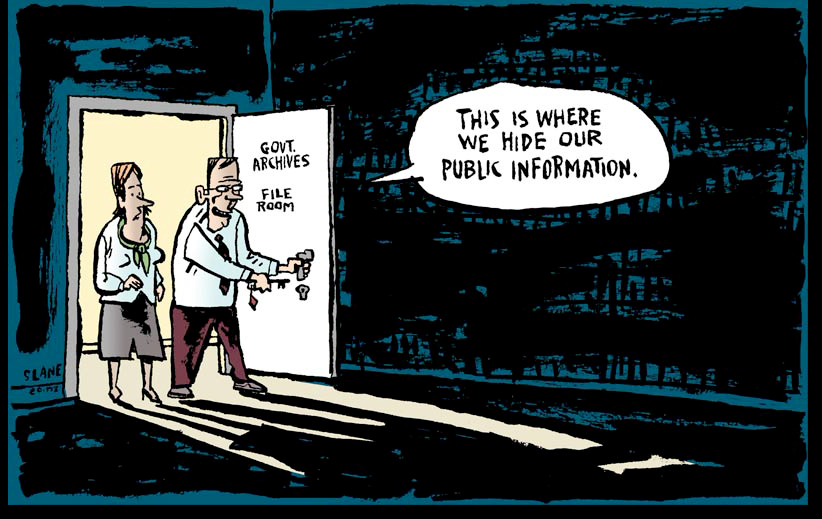The Council is being asked to abandon the right citizens currently have to hold highly paid officials to account.
A proposal to the “Audit Committee” says that senior officials should not in future have to attend a meeting to answers questions raised about their management responsibilities.

York residents petition
The existing petitions scheme (agreed in 2010) contains the following clause:
If your petition contains at least 500 signatures, you may ask for a senior council officer to give evidence at a public meeting about something for which the officer is responsible as part of their job. For example, your petition may ask a senior council officer to explain progress on an issue, or to explain the advice given to elected members to enable them to make a particular decision. The following senior staff can be called to account:
• Chief Executive
• Chief Finance Officer
• Monitoring Officer
• Directors of Service
A report, drafted by the Council’s monitoring officer, suggests abandoning this right.
Cabinet members also escape any requirement to explain their actions to taxpayers.
There are currently 5 live petitions running on the Councils web site.
The last Council meeting discussed a record number of petitions (7) submitted by residents and which had passed the 1000 signature threshold which guaranteed a discussion at a full Council meeting.. Most concerned the controversial aspects of Labour draft Local Plan.
—————————–
The same meeting – which is taking place next Wednesday -is set to approve a “protocol” for web casting of Cabinet and Council meetings.
Sadly the report makes no reference to the costs of such a proposal nor does it indicate how many “viewers” the trial broadcasts have attracted (understood to be derisory)

The key issue is whether a casual viewer would be able to follow what was actually taking place at a Council meeting. Even those sitting in the public gallery, with an agenda in front of them, some times struggle to work out what is going on.
The Council need to further develop the information that can be provided possibly using a split screen format. It is just possible that, if residents could see the relevant agenda item papers, together with the way that individual Councillors vote on each issue, more interest might be generated.
The trial web casting of “Cabinet” meetings has attracted very little interest. The meeting consist only of a dull procession of uninspired speeches from Labour Councillors. (It is a one party meeting).
A Council meeting offers more opportunity for debate on important issues but it will require much better organisation than has been evident on York Council governance issues over recent months.




